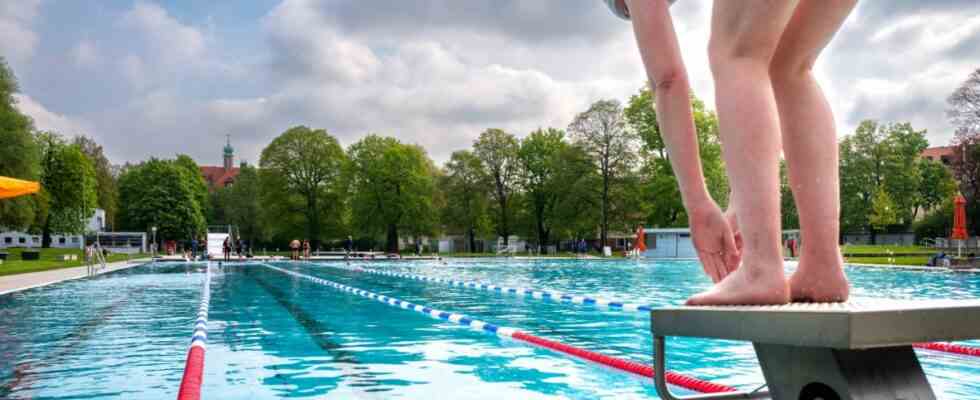First everything should stay the same, ergo: with the warm. Then the Stadtwerke (SWM) fought their way through – and lowered the water temperatures in the outdoor pools. That was at the end of June. In the swimming pools of all outdoor pools, the minimum temperature is now 22 degrees. In the warm water outdoor pools of the indoor pools, the temperature is 30 instead of 34 degrees. And in the currently only gas-supplied indoor pool, the Michaelibad, it is 25 instead of 27 degrees. With the summer weather forecast for the near future, a few degrees less in the water should be fine for many people. But what else are the city and its subsidiaries planning to save energy?
Helmut Dedy, General Manager of the German Association of Cities, recently called for an honest debate on this. “We have to talk about what comforts we can do without and what remains necessary on site,” he said. It’s about street lighting and traffic light switching or hot water in public buildings. As far as the municipal utilities are concerned, the two degrees less in the outdoor pool could not have been everything. “With regard to further steps regarding the operation of baths, saunas and the Prince Regent Ice Skating Stadium, various scenarios are currently being discussed internally with an open mind,” said a spokeswoman.
But your own energy consumption is also under scrutiny. In any case, the municipal utilities have committed themselves to reducing their consumption every year, according to the spokeswoman. With regard to the headquarters in the north of Munich and other SWM buildings, a concept is currently being developed due to the lack of gas, which is intended to significantly reduce energy consumption again. Further points are also being prepared and can be implemented quickly. This includes, for example, shutting off the hot water supply or ventilation systems that are not required for operation. Elevators and refrigerators could also be shut down.
Should the situation deteriorate further, the complete shutdown of the technical building supply – heating, ventilation, cooling and hot water supply – would be possible in buildings that are not required for operation. According to the municipal utility, more home offices and the closer togetherness of the presence workers in order to save heating, hot water and lighting in the other buildings could then become part of the considerations.
Almost half of the traffic lights are already switched off at off-peak times
In the city administration itself, such considerations have apparently not yet progressed that far. Would it be conceivable to do without hot water in public buildings? Will the heating be turned down a few degrees in autumn? Should the street lighting be dimmed? The city’s press office responds to these questions with a description of the status quo. Because: “Regardless of the current situation”, the topics of saving energy and expanding renewable energies have had “top priority” for the city for years, according to a spokesman.
For example, “the level of street lighting” on most main roads has been reduced daily from around 10 p.m. for many years. Already in the summer of 2019, the city brought forward the end of the operating hours of its public lighting of buildings, fountains and monuments from 0.30 a.m. to 11 p.m. And 48 percent of traffic lights are already switched off at off-peak times. In addition, the departments are currently examining “which energy-saving measures can also be implemented at short notice,” the spokesman said. And the town hall coalition is also considering further steps, as can be heard. Among other things, it could be about turning off the hot water in the town hall and restricting the lighting. After the town hall, it could also be the turn of the department buildings.
And what about the municipal housing associations? Last week, a housing cooperative in Dippoldiswalde, Saxony, was in the media because it only provides its tenants with hot water at certain times. It’s not that far in Munich yet. “The introduction of hot water times is of course not up for discussion with us,” says a spokeswoman for Gewofag. According to a spokesman, this is also not an issue for the sister company GWG. No other measures are currently planned.

